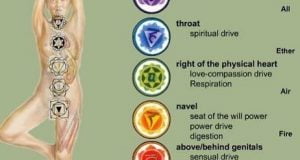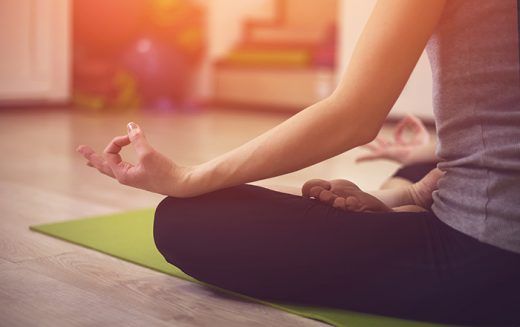
Deep Meditation has many benefits to offer an anxious individual. Deep meditation can not only reduce stress, but also has the potential to assist you to get better sleep, as well as improves social interactions, and helps to enjoy your life to the fullest.
Meditation changes brain structure increases gray matter, improves memory, and concentration, and effectively treats depression, stress, addictions, panic attacks, and anxiety disorders. Boosts immunity, lowers blood pressure, reduces the risk of heart attacks, develops compassion, and empathy, etc.
Yes, that’s all the benefits of meditation.
I have prepared a great observation post for you, from which you can get acquainted with 15 important findings of modern world science about the benefits of deep guided meditation in just 15 minutes.
I’m sure many of you admitted to your friends and coworkers that you’re passionate about attention, caught their malicious smiles and exchanges of understanding –” They say this is something that We’ve had enough, I think he’s got into a cult.
What is Deep Meditation?
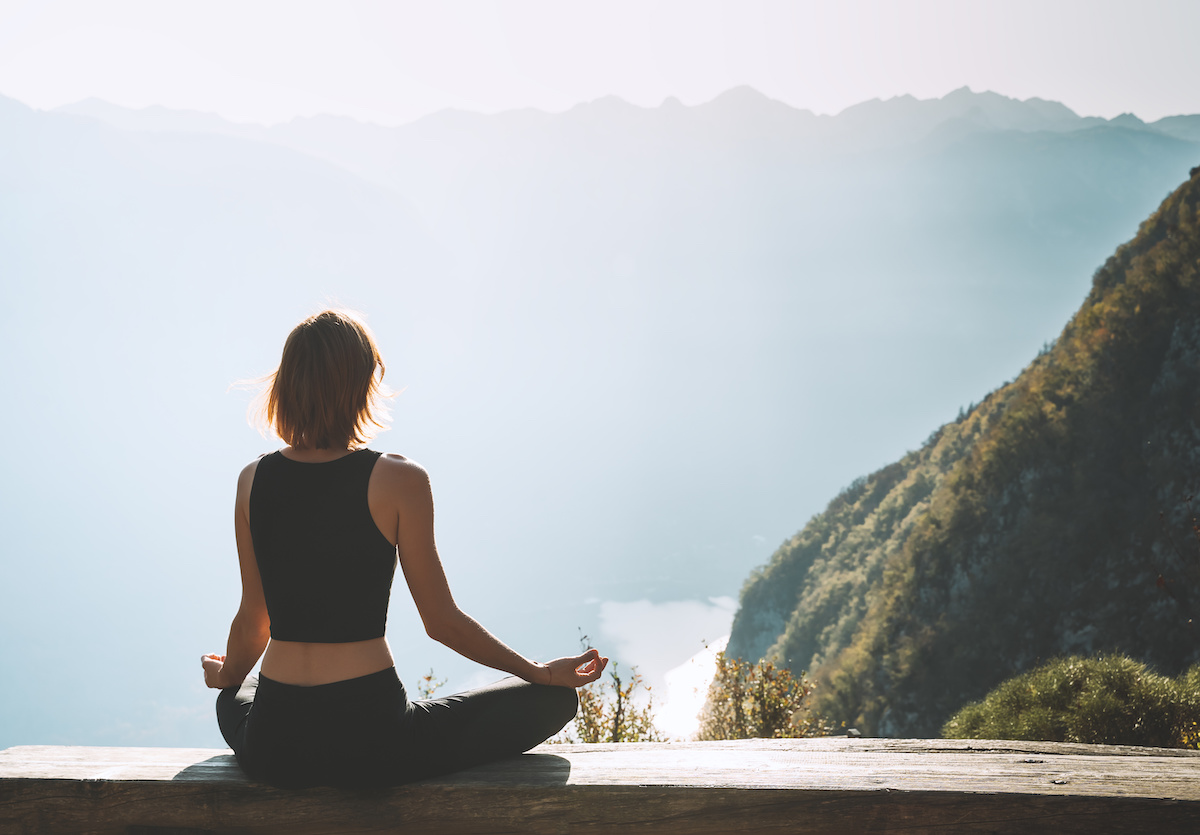
Deep meditation is regular meditation’s deeper version. In deep meditation practice, you experience a deeper thought. However, it takes a lot of determination to drive into the state of the deep meditation process.
When you try it, you’ll likely feel that it isn’t clear, or you’re not moving further. This is a direct result of the absence of center & force. You don’t comprehend the purpose of deep meditation, and how to do it right. Our psyches have two capacities.
The first one is, ‘Knowing’
And the second one is ‘Doing.’
The Deep Meditation is tied in with quieting the ‘doing’, and finishing the serenity while keeping up the ‘knowing.’ The vast majority begin pondering without setting themselves up for it. You probably won’t understand it, yet getting ready for the demonstration not just enables you to calm your brain easily.
To have a deeper experience in your meditation, you will have to learn other ways. However, today in this article below I am providing some tips that will help you to enter deep meditation from the state of your regular meditation.
Benefits Of Meditation:
If we all have one thing in common, it is the urge to be happy and content in life. Whether it’s a crying child, an insecure teen, or a responsible family man, we all need something that comforts us. Meditation is the habit of training your mind to focus and redirect your thoughts.
The popularity of meditation is increasing as more people discover its many health benefits. Knowing the benefits of meditation, people are making it a part of their lifestyle. You can use it to increase your awareness of yourself and your surroundings.
Many people think of it as a way to reduce stress and develop concentration. Some people also practice it to develop beneficial habits and feelings, such as a positive mood and attitude, self-discipline, healthy sleep patterns and even increased pain tolerance.
The list of health benefits of meditation is quite long. Here are some of the amazing benefits of meditation that can help improve your overall health.
Improve Sleep:
About half the population will be suffering from insomnia at some point. One study compared mindfulness-meditation programs and found that people who meditated were more successful at getting longer sleep.
Becoming proficient in meditation can help you control or redirect the racing or rushing thoughts that often lead to insomnia. It can help to relax your body, release stress, and keep you in a peaceful state.
Increases Concentration:
 Meditation with focused attention can help you increase concentration. It increases the strength and patience needed to concentrate.
Meditation with focused attention can help you increase concentration. It increases the strength and patience needed to concentrate.
For example, one study looked at the effects of Vipassana meditation after eight weeks and found that participants had an increased ability to meditate.
Even meditating for a short time now can benefit them. Another study also found that now practicing meditation four days a week also gives you the benefit of meditation.
Can Cause Kindness:

Certain types of meditation can increase positive feelings and actions, especially towards oneself and others. Metta, a type of meditation also known as loving-kindness meditation, begins with developing compassionate thoughts and feelings towards oneself.
Controls Anxiety:

Meditation can reduce stress levels, which translates to less anxiety. Several studies have found that meditation can reduce anxiety. In addition, meditation can help reduce symptoms of anxiety in people with anxiety disorders. Meditation is considered very beneficial in calming the mind.
Helps In Reducing Blood Pressure:
Meditation reduces the pressure on the heart, which improves physical health. In experiments with 996 people, it was found that when they focused on a “silent mantra” and repeated it repeatedly, it lowered blood pressure by an average of five percent.
In some cases, meditation by controlling the signals of the nervous system can also lower blood pressure because the nervous system is directly related to the blood vessels and the heart.
Enhances Self-Awareness:

Certain forms of meditation can help you develop a stronger understanding of yourself, allowing you to grow into your best self. For example, self-examination meditation aims to develop a greater understanding of yourself and how you relate to the people around you. The idea is that as you become more aware of your thought habits.
Reduces The Problem of Forgetting:

To improve concentration, you have to do meditation regularly and with a clear mind. This helps get rid of the problems of forgetfulness and dementia in old age.
According to studies, many types of meditation techniques have been found to increase concentration, memory, and brain speed in older people as well.
Reduces Stress:

Stress reduction is one of the most common reasons people try meditation. Generally, mental and physical stress causes an increase in the levels of the hormone cortisol. It produces many of the harmful effects of stress, such as the release of inflammatory chemicals called cytokines.
These effects can disrupt sleep, promoting depression and anxiety. Can raise blood pressure and contribute to fatigue and clouded thinking. Many studies have said that meditation can relieve stress.
Can Help Fight Addictions:

The mental discipline you can develop through meditation. He can help you break the dependence by increasing your self-control and raising awareness about the triggers for addictive behaviors. Research has shown that meditation can help people redirect their attention, manage their emotions and impulses, and increase their understanding of what causes them.
May Reduce Age-Related Memory Loss:
 Improving focus and clarity of thinking can help keep your mind young. Kirtan Kriya is a method of meditation that combines a mantra or chanting with a repetitive motion of the fingers to focus one’s thoughts.
Improving focus and clarity of thinking can help keep your mind young. Kirtan Kriya is a method of meditation that combines a mantra or chanting with a repetitive motion of the fingers to focus one’s thoughts.
Studies in people with age-related memory loss have shown that it can improve performance on neuropsychological tests.
Promotes Emotional Health:
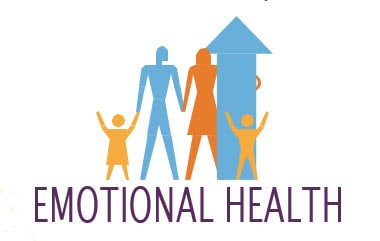 Certain forms of meditation can lead to a better self-image and a more positive outlook on life. Studies have found that mindfulness meditation can improve symptoms of depression. At the same time, the symptoms of depression can be reduced by meditation in people receiving therapy.
Certain forms of meditation can lead to a better self-image and a more positive outlook on life. Studies have found that mindfulness meditation can improve symptoms of depression. At the same time, the symptoms of depression can be reduced by meditation in people receiving therapy.
Reduces Any Type Of Physical Pain:

Your pain is directly related to your brain and it gets worse in stressful situations.
One study showed that people who experienced similar types of pain, some of whom meditated and some did not have a greater ability to tolerate pain and even less pain. and the pain of those who did not would intensify. It happens what you think.
If you think more about a problem, then it will feel more and if you take away the ‘attention’ from there, then forget it for a few moments, it will not be felt at all. Meditation creates control over that ‘meditation’ itself.
Helps To Give Up Bad Habits:
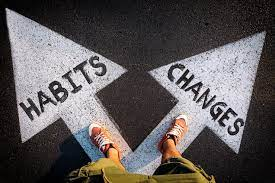
Your mental discipline increases through meditation. Due to this your self-control increases and it is also easier to know what is the cause of your problem. Because of this, your habit of being dependent on other things ends.
The psychic you can develop can help you break dependence by increasing your self-control and awareness of triggers for addictive behavior.
Meditation helps in regaining focus, increasing willpower, controlling emotions and cravings, and understanding the causes of bad habits.
Keep These Things In Mind Before Meditation:
- Keep your body relaxed, keep calm and focus your mind
- Remember, during meditation, do not bring wrong thoughts to your mind that can stray your attention
- Keep your mind happy with a positive feeling and keep your mind firm
How to Do Deep Meditation?
These are the things that will take you to deeper meditation. So follow these steps to perform the deep meditation:
Choose A Quiet Place:
To do Deep Meditation, you should choose a place first, where there is no disturbance and where the atmosphere is calm.
Take A Mat To Sit On:
For Deep Meditation, you should use a thing where you can sit comfortably for meditation for 20 to 30 minutes. For this, the choice of a yoga mat is best.
Choose Correct Light:
To give comfort to the brain, white light or yellow light is quite good. So instead of light, you can use candles or lamps.
Choose The Right Time To Meditate:
The best time to meditate is considered in the morning. But if you want to do it in the evening, just be careful not to choose such a time when you have to leave the meditation for some work in between.
Method Of Deep Meditation Practice:
- First, sit on your mat
- You have to sit for 20 to 30 minutes in a raw so you can do some stretching first
- For this, turn the waist to the right and left (By which the body will be stretched and the tension will be removed)
- Now start your meditation by sitting comfortably
- Focus on the empty wall
- Those who meditate with closed eyes are afraid to sleep. And for those who practice meditation with open eyes, it seems difficult to reach the state of meditation. For this reason, you should focus on the empty wall.
- Blink if needed
- Focus on your breath and take 8 to 10 seconds long deep breathing
- Hold it for 2 to 4 seconds
- And then leave it counting from 8 to 10
- Repeat this process for 2 minutes
- Experience breathing and dropping in it
- Try to see with closed eyes too
- Or you can use the garland to focus
- If you are new to learning meditation then take a Garland
- Take the rosary in Hands
- Holding a pearl of the garland with your fingers, take your breath and leave it
- You have to repeat this with every pearl on the necklace
Above you have learned Tips for Deep Meditation. Deep Meditation increases concentration and decreases stress. The ability to think is developed. Memory power increases. Therefore, practice deep meditation regularly.
BOTTOM LINE:
Meditation is one such way, with the help of which you can understand yourself better. Yes, not only can you control your thinking while doing meditation, but you can also get many innumerable benefits from this age-old practice.
Along with meditation, you can benefit from meditation, calming the mind, understanding feelings and thoughts clearly, recovering from any mental problem, etc. In such a situation, people need to take care of some things while doing meditation.
Today’s article is on this topic. Today, through this article, we have talked about what things you can keep in mind during meditation.
FAQ:

Q. What is the deepest type of meditation?
A. Yoga Nidra is a method to open up as well as join a deep state of relaxation. Start with simply lying down on the bed flat as well as proceed into what is generally a suggested step-by-step meditation to calm your body and mind.
A deeper level of meditation in daily life help activate your parasympathetic nervous system, which downregulates any stress response in the entire body.
Q. What happens when you meditate deeply?
A. When meditating deeply in your daily life, you slowly loosen the restrictions of self-centeredness. When you ease into the gentle transition, even for a few moments, your mind changes to a further subtle type of awareness.
Your body becomes less self-conscious. Bodily pain as well as emotional stressors can disappear for a time, as well as there can be a deep and lasting feeling of peace. So, start meditating today on your to-do list to bring more focus and more joy into your life.
Q. How long does deep meditation take?
A. Well, it entirely depends on your whole body and its ability. When I started meditating, I used short prayers for less time to reach the deep state. And then I gradually increased the time.
When you have a strong intention to fight your negative thoughts and improve self-judgment, you can avoid pain. So, start concentrating on your practice. It certainly takes patience and time but for a good reason.
Q. What do people see in deep meditation?
A. With regular meditation, you see positive changes in your body. Meditations help you be more aware in life, relax more, be anxiety and stress-free, etc.
If you are going through the same state of mind, then start your meditation sessions today. You can choose guided meditation, mindfulness meditation, or any other form of meditation for a better nervous system.
Q. What happens in deep Mindfulness meditation?
A. In deep mindfulness meditation practice, you experience a deeper thought. However, it takes a lot of determination to drive into the state of the deep meditation process.
Q. How do you meditate deeper?
A. Deep meditation session is the regular meditation’s deeper version. It takes a lot of determination to drive into the state of the deep meditation process. Start the deeper meditation with a deep breath and continue with the following breathing exercise.
There is no right or wrong way to breathe. As long as the process of meditation helps you generate feelings especially positive feelings with the help of meditative absorption, is the right way you can meditate deeply.
Q. Is it OK to fall asleep during meditation?
A. Falling asleep while meditating is a common incident and in case it occurs to you once in a while then you do not need to worry about it. However, with practice, you need to prevent such an occurrence.
Make sure all the muscles are wide awake during your meditation session. Seek pleasure in the present moment but do not fall asleep. Keep on taking deep breaths for your deeper meditation session.
Q. How long does it take for meditation to start working?
A. Well, this depends on various facts like which loving-kindness meditation you are practicing, for how long you are practicing in a day, and whether your practice methods are accurate or not.
So, there isn’t any certain period for this. As long as you can practice deep meditation gently continue the breathing exercise.
Q. What Is The Right Time To Do Meditation?
A. Meditation can be done at any time. However, early morning or late night time is the best time to meditate as the world is quiet during this time i.e. there is less noise outside.
The advantage of meditating at this time is that you do not have to worry about doing daily tasks and you do not have trouble with phone calls or other household chores.
Or you can also take out time according to your own, like if you have children in the house, then you can do meditation after their sleep.
It is best to meditate at the same time every day. This creates balance and helps to make meditation a part of your life. The good thing about meditating in the morning is that your stomach is empty at that time. Meditation and yoga should be done about four hours after eating.
To Know More About Types Of Meditation:-
-
- What Is Tummo Meditation & How Does It Work?
- What Is Merkaba Meditation & How Does It Work?
- UCLA Guided Meditation | Mindful Awareness
- What Is Vedic Meditation & How Does It Work?
- What Does It Mean By 6-Phase Meditation? Know Here!
- What Does It Mean By Gratitude Meditation?
- Which Meditations Are Called Spiritual Meditations?
- What Does It Mean By Third Eye Meditation?
- What Is Miracle Meditation & How Does it Work?
- What Does It Mean By Abraham Hicks Meditation?
- What Is Jedi Meditation & How Does It Work?





